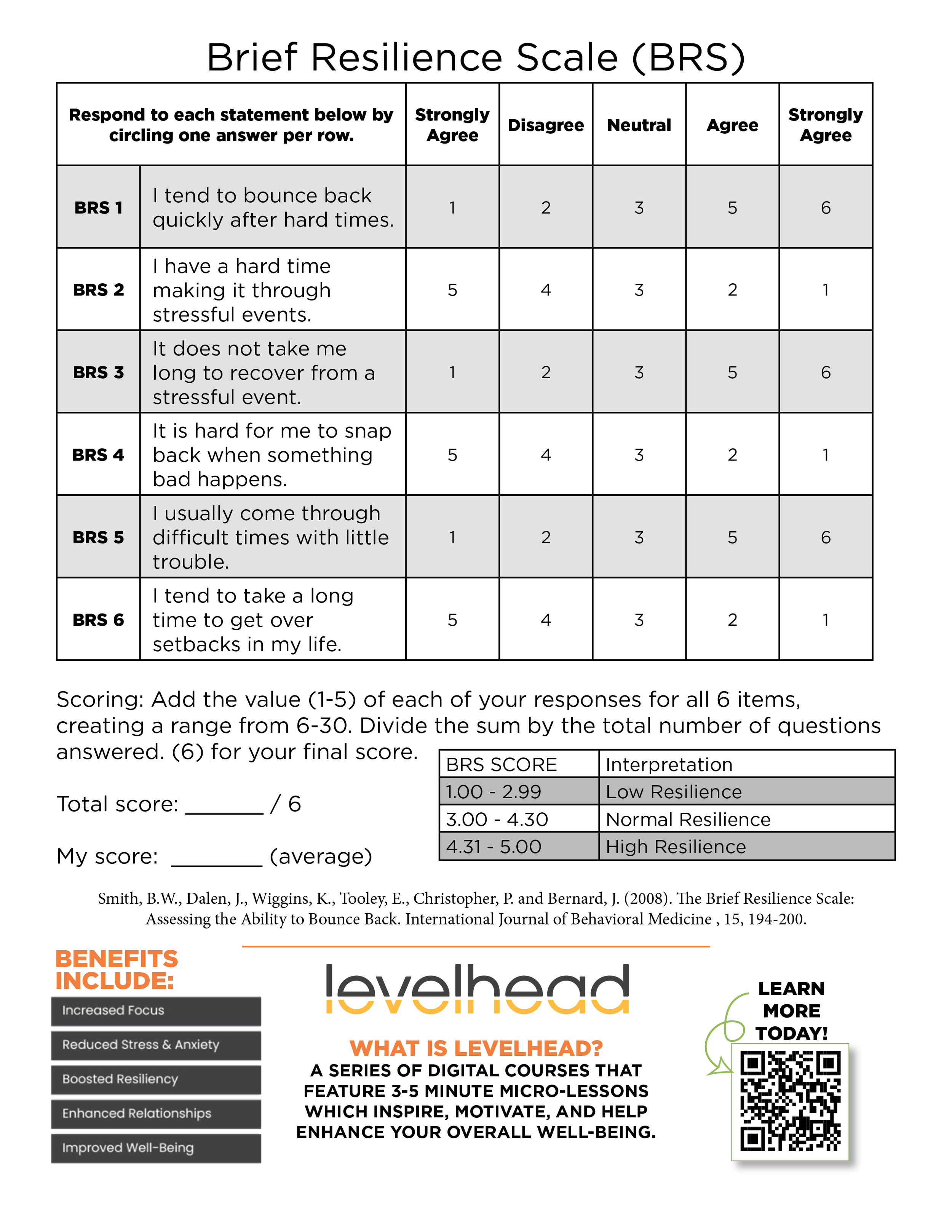How Well Do You Bounce Back?
Resiliency is often described as the ability to bounce back from adversity, trauma, tragedy, threats, significant sources of stress, or other challenging life experiences (American Psychological Association, 2022). Extensive research shows a relationship between resilience and lower levels of mental distress, depression symptoms, and anxiety and higher levels of life satisfaction, happiness, quality of life, and subjective well-being.
Because resilience is a protective factor that can improve physical and psychological health, self-report questionnaires for assessing resilience have begun to appear within the past few decades. Scales focus on evaluating resilience at the level of personal characteristics, involving individuals' protective factors or resources and coping styles. One of the most often used measures of resiliency is the Brief Resilience Scale (BRS) (Smith et al., 2008). Click here to download a copy of this six-question scale. As you consider where you are on this scale, remember that resilience involves a dynamic combination of biological factors, psychological factors such as emotion regulation and coping strategies, and social factors such as social support. It is a universal trait present in all of us, and when developed and nurtured, it can promote overall well-being.
Developing Your Level of Resiliency
Studies show that resilience is changeable and responds to educational and cognitive development processes. This may indicate that participating in an integrated resilience and mindfulness training program increases mindfulness. According to resilience research, increased mindfulness may provide growth and cognitive and emotional development processes needed to recharge resilience factors and improve psychological well-being. These results indicate that mindfulness draws attention to the emotional response caused by a stressful event. This awareness promotes adaptation to a stressful event by engaging in cognitive emotion regulation strategies (adaptive) to alter the negative emotional response.
Adaptive emotion regulation strategies reinterpret the meaning of a stressful event in a positive way, which leads to coping strategies and the flourishing of abilities in stressful events, thus resulting in resilience. On the other hand, being less mindful leads to engaging in maladaptive strategies that inhibit the ability to adapt to a stressful event, and automatically reacting to a stressful event leads to less effort to change a negative emotional response. Additionally, failure to use mindfulness allows the mind to wander and focus on the stressor, exacerbating the negative emotional response and thus inhibiting resilience.
Individuals can develop their cognitive ability and flexibility by participating in a training program in resilience and mindfulness. Effective programs help individuals develop personal skills such as cognitive restructuring, developing patterns of constructive thinking, being hopeful, setting goals, and changing their behavior based on their abilities and talents. These skills help individuals to become aware of negative feelings and thoughts, use effective coping styles, and feel more competent in the face of uncontrollable external factors.



